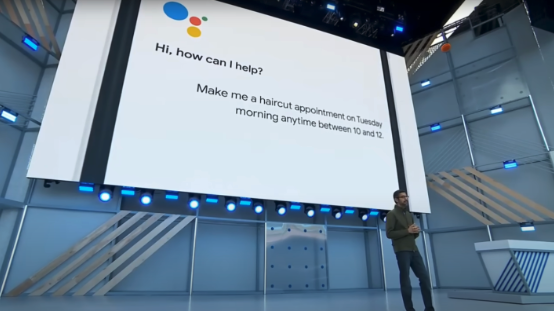
In a world where technology evolves faster than a tweet goes viral, we stand on the precipice of a marketing revolution courtesy of Generative AI. This isn’t just about robots taking over mundane tasks; it’s about reshaping the entire consumer landscape. Imagine, if you will, a near future where your AI assistant not only knows your favourite cereal but also orders it for you. Convenient? Absolutely. Terrifying for traditional marketers and organisations? You bet.
This future is nearer than most people imagine or possibly fear. Significant progress has already been made, with critical components already being demonstrated by some of the major players in the tech industry. Google demonstrated that their Duplex AI could book hair appointments with a two-way voice conversation with a salon receptionist back in 2018. That is a human touch. But that’s just the tip of the iceberg.
Generative AI is progressing at a pace that’s nothing short of breathtaking. OpenAI led the charge with the launch of ChatGPT on 30 November 2022, and 14 months later, it reported $2bn in revenues. With companies like OpenAI, we’re not just talking about impressive revenues; we’re witnessing a seismic shift in how technology interacts with our daily lives. The most recent example is Reid Hoffman creating his ‘AI Twin’ and then interviewing and being interviewed by himself. This takes that human touch to an entirely new level.

A new era?
The imminent fusion of Large Language Models combining public data with personal data — calendars, shopping preferences, medical records — is set to birth a new era of AI shopping assistants.
These digital aides will not only handle mundane shopping tasks but also make informed decisions based on our preferences, price points, and even allergy requirements.
They will suggest alternatives when your favourite product is out of stock or recommend products that better meet your needs, wants or diet to prepare you for your upcoming exotic beach holiday. No longer will you forget that you need to buy more AA batteries or a birthday card for your elderly relatives.
Here’s where it gets challenging for marketers. Why target the consumer when their AI is making the purchase decisions?
This paradigm shift will demand a new marketing playbook. Instead of seducing human emotions, brands will need to convince algorithms of their product’s worthiness. We’re entering an era where data/metadata and AI-friendly interfaces could become the new battleground for consumer attention.
A tipping point for AI?
Just as search engines spawned the SEO industry, which is currently estimated to be USD 68 Billion , the new AI era is poised to create its own niche market. Picture AI agencies are dedicated to optimising product metadata, descriptions, and relevance, ensuring that your products and services are the top picks for these AI shoppers.
The concept isn’t far-fetched; it’s a logical progression of AI technology, data-driven corporate marketing, and consumers’ drive for a more convenient world.
The future of eCommerce will likely demand dual interfaces: one for human consumers, where consumers still want to select the latest trend in checked shirts or hand-pick a Valentine’s gift for their loved ones, and another for AI bots. Remember the ‘old’ days when website sitemaps were essential for effective search engine crawling?
We might see a similar approach to facilitate AI interactions with online stores. Here’s the million-dollar question: will this technological and societal advancement spell the end for traditional brand marketing or even brands themselves? If AI makes purchasing decisions based on data and efficiency, where does this leave brand loyalty and identity? Will the art and science of brand values and design be replaced? Will behavioural science be rendered irrelevant, at least for some of your shopping list?
Will Data Scientists finally be considered the cool kid on the block?
As we hurtle towards this AI-dominated future, one thing is clear: the marketing rulebook is about to be rewritten, but it will have far-reaching implications across the entire organisation.
Getting ready for the AI revolution
Here is the second million-dollar question: are organisations ready for this new AI era? Do they have the data infrastructure to enable this world? Do they have the culture and organisational structure in place to leverage this opportunity? Can they ensure legal compliance, and how do they predict capacity and stock requirements to ensure their product is available when and where required, especially in the early days when volumes from this new channel are unknown?
Interestingly, if brand recognition and loyalty are no longer a key factor in AI bots’ decision-making, do smaller/lesser-known brands and startups have an opportunity to leapfrog established brands, at least in some sectors, by focusing their efforts on AI Optimization rather than expensive brand marketing? Will the lack of Brand Equity start to impact a company’s enterprise value, being replaced by the value of how effective their AI optimisation efforts are?
Brands will need to adapt or risk obsolescence in an age where AI’s opinion might matter more than human preference, and organisations need to prepare themselves to enable this future.
So, as we brace for this brave new world, ask yourself: Will your brand survive the AI scrutiny? Are you ready for this new challenge, or will it be lost in the algorithmic shuffle?




